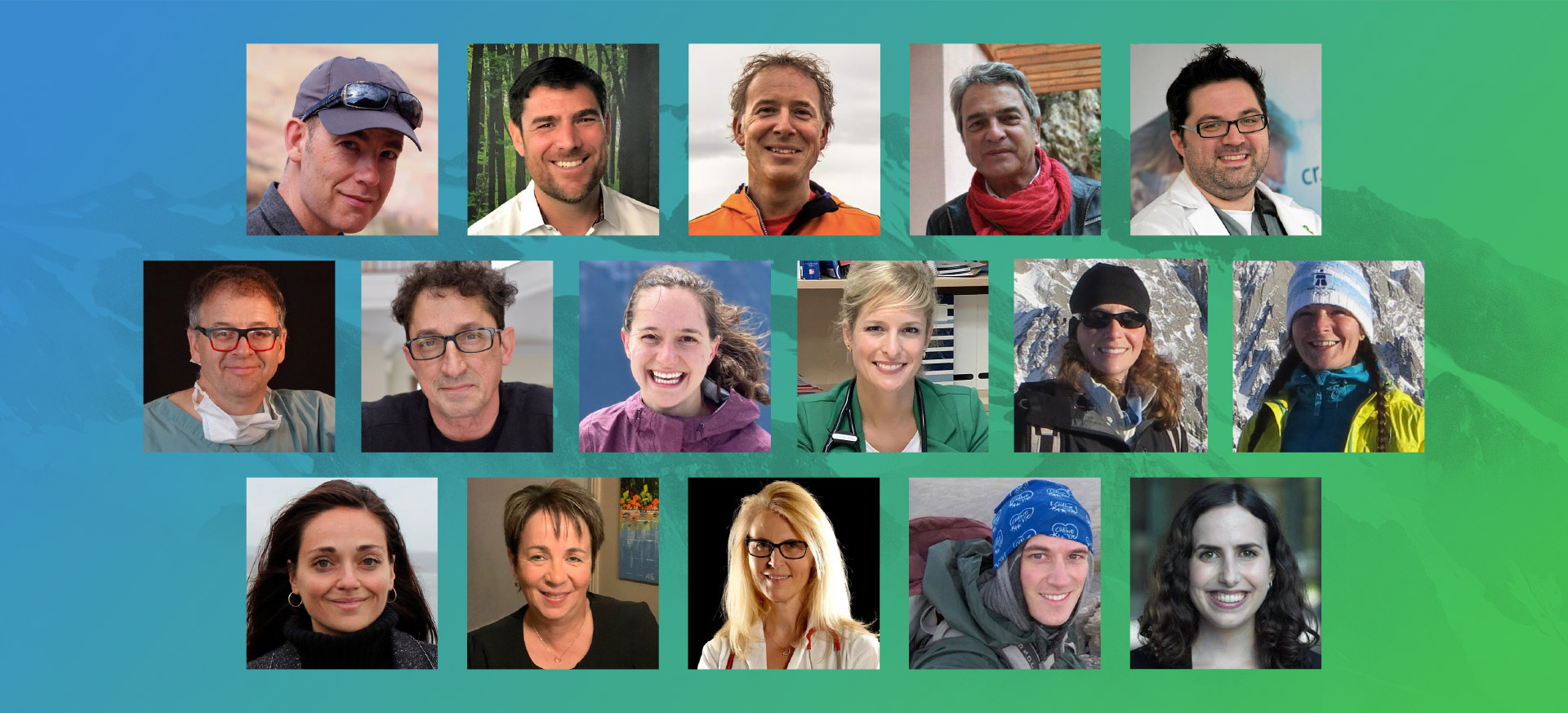
A Visually Impaired Student Inspires and Shares a Message of Hope
On October 5, Anna Lemay, a visually impaired student from Polyvalente de Saint-Jérôme,...
Read/View / Chain of Life Challenge

QUÉBEC CITY, October 12, 2021 - The pressure exerted by COVID-19 on our healthcare system is undeniable and its repercussions will be felt for a long time to come. Chain of Life would like to pay tribute to the physicians involved in organ and tissue donation, who have continued their mission to save lives despite the difficulties of the past year. Thus, as part of the "World Day for Organ Donation and Transplantation", doctors will simultaneously climb 15 mountains in Quebec and France as flag bearers of the Chain of Challenge to support organ and tissue donation education in schools. Chain of Life invites the general population to show their support during this unique event which will take place on October 17.
“The importance of the role of education, for both our health professionals and for the people of Quebec in general, is undeniable," explains Lucie Dumont, president and founder of Chain of Life. “Since its very beginning, Chain of Life has sought to bring the health and education sectors together in order to ensure that as many people as possible are exposed to the messages of hope and solidarity that organ and tissue donation represents. To see doctors climbing like this for organ donation education warms my heart."
The Centre interuniversitaire de recherche en analyse des organisations (CIRANO) recently published a report analyzing the success of organ donation in ten jurisdictions in Canada and elsewhere in the world1. This report states that presumed consent is not necessarily the one element alone that makes optimization possible. There are other ways that seem to be more relevant for increasing the number of organ donors. These include educating health care professionals, simplifying the methods used to consent or refuse to donate and educating about organ donation.
According to this important study, educating family members and raising awareness about organ donation at the school level can have an impact on both the willingness of families to consent and their willingness to respect the consent of their loved ones. It is therefore recommended to include organ donation education sessions as early as in the primary or secondary school curricula and that these mandatory sessions be included in a specific law on organ donation.
“This report confirms what I have always believed when creating the Chain of Life education program," said Ms. Dumont. “For more than ten years, our program has proven its relevance by offering secondary school teachers a free, turnkey education program that encourages young people to form an informed and personal opinion on this issue and to share it with their parents.”
“Raising awareness among young people helps instill a positive vision of organ donation, which can have an impact on their wishes once they are adults," says Jean-Pierre Léger, vice-president of the Fondation de la famille Léger, the main partner of the Chain of Life Challenge. “This is why we are supporting Chain of Life's mission again this year.”
Each year, representatives from the organ and tissue donation chain gather around a regional flag bearer and go and plant the Chain of Life flag on the top of mountains located all around Quebec as part of the Chain of Life Challenge. This year, it is physicians involved in organ and tissue donation who will be the regional flag bearers. The general public can make a donation or accompany them while respecting the public health guidelines in effect.
“I am very proud that doctors are being highlighted like this as part of the event," said Thierry Houillon, patron of the Chain of Life Challenge and liver transplant recipient. “I was given a second chance at life thanks to the science of transplantation and I think it is important to take a few moments to pay tribute to one of the essential links in the donation chain, that is, to those who save lives every day with organ transplants.”
“I want to donate my organs when I die because for me, it's a question of life, humanity and giving to our fellow man," explains Isabelle Maréchal, who has been a patron of the Chain of Life Challenge for several years. “The Chain of Life Challenge allows us to raise awareness about all the positive impacts that organ donation has on our society."
Chain of Life is a charitable organization, the primary mission of which is to support a program to educate youth 15 to 17 years old about organ and tissue donation in secondary schools. It allows young people to make an informed personal decision on this important issue in our society and encourages them to become ambassadors for family discussion. It also brings them to realize the inestimable value of a healthy body. This program is currently being taught in around 100 schools in Quebec and almost 100,000 young people have been touched by its message.
Chain of Life relies almost entirely on public donations from the Chain of Life Challenge in order to, among other things, create tools to better inform families about organ and tissue donation and to help debunk the myths associated with it. Leading transplantation specialists participate in the form of video clips.
The important role that Chain of Life plays in society is highlighted in the new exhibition, “Generosity. From the Heart” at the Musée de la civilisation de Québec. It runs from October 6, 2021, to October 2, 2022.
1. Don d’organes au Québec - Étude comparée des bonnes pratiques, CIRANO, 2021
Note: The event in Lanaudière will take place on October 16.
Promotional video clip for the Chain of Life Challenge
Sophie Allard, ARP
514 808-9474
sophieallard@chainedevie.org

On October 5, Anna Lemay, a visually impaired student from Polyvalente de Saint-Jérôme,...

Our great human chain came to life through 18 challenges, in Quebec and around the world, shining a...